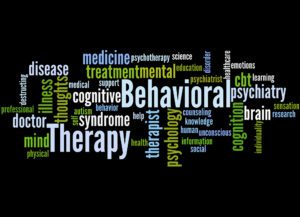 According to the National Survey of Drug Use and Health, almost 50% of all people age 12 or older in the US have tried illicit drugs at least once in their lifetime. Close to 20% had tried them in the past month. While not everyone who experiments with drugs becomes addicted, millions of people do. The Substance Abuse and Mental Health Services Administration reports that in 2015 alone, more than 21 million people likely could have benefited from addiction treatment. Yet many went without it for various reasons.
According to the National Survey of Drug Use and Health, almost 50% of all people age 12 or older in the US have tried illicit drugs at least once in their lifetime. Close to 20% had tried them in the past month. While not everyone who experiments with drugs becomes addicted, millions of people do. The Substance Abuse and Mental Health Services Administration reports that in 2015 alone, more than 21 million people likely could have benefited from addiction treatment. Yet many went without it for various reasons.
If you are struggling with addiction, you don’t have to do so alone. Contact us at Valley Recovery Center in Dulce, California, to find out more about our luxury rehab center and how we can help.
One proven method we employ to help people with addiction is cognitive behavioral therapy. Find out more about CBT techniques for drug abuse treatment below.
What Is Cognitive Behavioral Therapy?
Cognitive behavioral therapy is one type of talk therapy. It’s an evidence-based method for treating a variety of mental health issues, and it’s a popular choice for many treatment providers because of its effectiveness in assisting those with addiction. Evidence-based simply means that there is a lot of research on this methodology, with scientists and mental health professionals drawing the conclusion that the treatment is effective.
What Is CBT Used to Treat?
CBT has been used to treat a wide variety of mental health and behavioral disorders as well as some physical issues. That includes:
- Mental health disorders, including but not limited to depression, anxiety, bipolar disorder, schizophrenia and psychosis
- Behavioral disorders, including but not limited to eating disorders, OCD, phobias and borderline personality disorders
- Some health issues, such as irritable bowel syndrome, chronic fatigue syndrome and fibromyalgia, which can have psychological components or stressors that CBT can assist with
- Addictions to substances such as alcohol or drugs
- Addictions to behaviors or other stimuli, including gambling, video games, porn and sex
How Does CBT Work and What Makes It Different From Other Therapy Approaches?
On the surface, CBT might look a lot like other therapy practices, especially to those who are unfamiliar with the process or not trained in psychotherapy. In practice, CBT is a lot of talking, thinking through what was talked about and attempting to put new skills into practice. But the principles behind CBT are slightly different than with other psychotherapies.
CBT rests on the concept that all behaviors are learned. If you learned a behavior, the thought is that you can unlearn a behavior. Thus, behaviors can be changed. Other core concepts of CBT include:
- The belief that psychological problems, including those relevant to a person’s addiction, are due to both negative thought patterns and inappropriate behavior patterns (which were learned).
- People who are living with these negative thoughts and patterns can discover the root causes for them and work to unlearn and change them.
While each person is unique and therapists approach each situation with that in mind, CBT treatment can take some common paths. For example, before someone can start working toward changing patterns, they must first learn how to recognize and isolate thought patterns that might be causing some of their problems. During individual or group CBT sessions, counselors guide individuals to begin to see these thoughts and understand them for what they are — which might mean realizing some of the thoughts aren’t rooted in reality or that they are based on incorrect or harmful assumptions and beliefs.
Next, the person begins to understand how their emotions and behaviors are triggered by these thoughts. For example, they might see that certain stressors at work cause them to begin to think a certain way. They then have a physical and emotional reaction to those thoughts. That reaction translates into a certain behavior. In the case of someone who is struggling with addiction, the behavior may be using drugs, seeking drugs or otherwise engaging in activity that is destructive to self.
Once a line is drawn connecting the trigger, thought and behavior, individuals in CBT work with their counselor and others to define more appropriate thoughts and behaviors. These are often referred to as healthier coping skills.
It’s not uncommon for a counselor to give “homework” during CBT sessions. Someone might have identified a certain negative thought and a new coping mechanism for dealing with it, for example. The counselor might instruct them to look for opportunities to put that coping mechanism into action between that time and the next CBT session. The individual would then report on how the practice went and troubleshoot issues with the counselor, with the goal of constantly improving confidence and capability with these new skills so that they become the default reactions and behaviors.
How to Use CBT for Addiction Treatment
Cognitive behavioral therapy is often used in addiction treatment. It works well in inpatient residential and outpatient environments — in group settings or in individual therapy sessions.
CBT techniques for addiction treatment aren’t really that different from what was described above. During therapy, individuals in recovery work to identify and reframe potential false beliefs that might have led them to start abusing drugs and alcohol in the first place.
For example, someone might have turned to drugs because they felt they weren’t good enough. They could never keep up with the perceived expectations of others, and the stress of possibly “failing” led them to abuse substances as an escape. Or perhaps they turned to drugs such as cocaine or amphetamines because it’s the only way they thought they would have the energy to keep up with the demands they felt others were making on them. Some other false beliefs someone in such a situation might have could include “No one will love me if I fail” or “I have to do all this to be a good person.”
While someone could go through detox and address physical dependencies, if they don’t address these false beliefs, they’re more likely to relapse with drug abuse shortly after leaving treatment. Cognitive behavioral therapy helps the individual address these false beliefs, creating new thought patterns such as “The people who really love me will keep loving me even if I’m not perfect” and “I don’t have to do everything alone to be successful.”
Starting with these new thought patterns, the person can begin practicing healthier coping mechanisms, such as not hiding the truth from loved ones or saying no to things and setting healthy boundaries. In this case, making these behavioral changes would likely help the individual as they move toward long-term recovery.
Can CBT Treat Addiction on Its Own?
Every person — and every treatment plan — is different. What works for you might not work for others, and vice versa. That’s why we work to develop individual treatment plans for every person getting treatment at Valley Recovery Center. That’s also why the answer to this question is not a simple yes or no.
In some cases, CBT might be able to shoulder much of the burden of addiction treatment. This is especially true if you’re psychologically dependent but not physically dependent on a substance. That means your brain thinks it needs the substance and you rely on it mentally and emotionally. But your body doesn’t necessarily need it to function and you don’t have physical withdrawal symptoms when you stop taking it.
However, in other cases — especially those involving serious physical dependency — CBT alone may not be enough to help with an addiction. You might require medically assisted detox to help you get through severe withdrawal symptoms as your body detoxes from drugs or alcohol.
And in many cases, CBT is just one tool that’s used in a comprehensive approach to treating substance abuse disorders. Treating the entire person is important, which means CBT may be used alongside other tools, including:
- Medication and medication management
- Medically assisted detox when appropriate
- Education about the cycle of addiction
- Education and support for overall wellness, including fitness, nutrition and self-care
- Recreational activities designed to improve confidence and provide room for practicing new skills
The Benefits of Cognitive Behavioral Therapy for Addiction
CBT has a number of benefits that are relevant for treating addiction. First, it’s flexible with regard to how you integrate it into treatment. If medication is required for detox, CBT can be used to support and carry on with treatment after those methods have been used. But if someone doesn’t want medication-assisted treatment for any reason, CBT can still be used and has been shown to be effective, even when working with someone who is dealing with withdrawals from a substance like heroin.
Another benefit of CBT is that it can begin to produce results quickly. That’s not to say that CBT addiction treatment is fast and easy. It’s simply that you might begin to see results and progress fairly early, which can motivate you to continue to work hard during recovery.
CBT is a highly structured form of therapy. And while that might not seem like an ideal thing to many people, someone who is struggling with addiction can often find security in the structure. They know what they are working on, what’s coming next and how to get from point A to point B. Many other things about life — including something as personal as mood or ability to focus — might be changing on a daily basis. The fact that CBT is a known quantity can actually make it more attractive.
Finally, through CBT, you learn practical skills you can apply in the real world. The immediate goal is to apply them when dealing with addiction, but many of those skills can be used for other purposes. For example, CBT techniques and the coping skills practiced during the sessions can be applied to create healthier relationships, better performance within a career or simply a more contented state of mind with life in general.
The biggest downside is that a person has to commit to the process and be willing to put in the work. Cognitive behavioral therapy is not something that is done to you. It’s not like a surgical procedure, where a doctor goes in while you’re unconscious and removes a problem. If you’re not actively involved in the CBT process, participating in each session and carrying through with homework between sessions, you’re not going to see results.
Contact Us for Help With Addiction Today
At Valley Recovery Center, we use CBT and other tools to help you map a road to recovery and begin your journey. One of the great things about CBT in a center environment is that you can learn and practice these new skills in a safe, supportive environment while planning for a brighter, drug- and alcohol-free future. Call us today at or use our online contact form. We’re ready to answer your questions about CBT and other recovery topics and help you understand what your options are when it comes to treatment.







